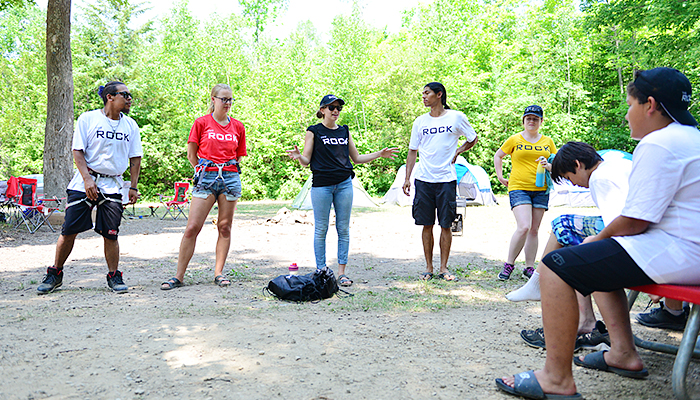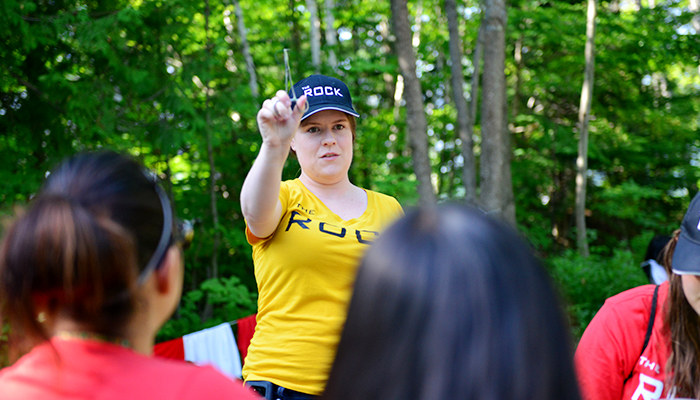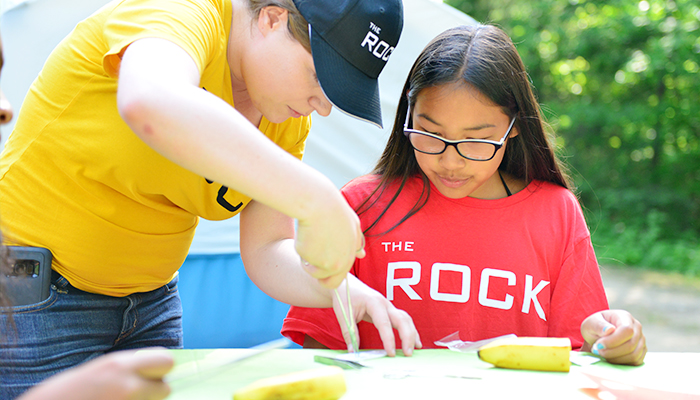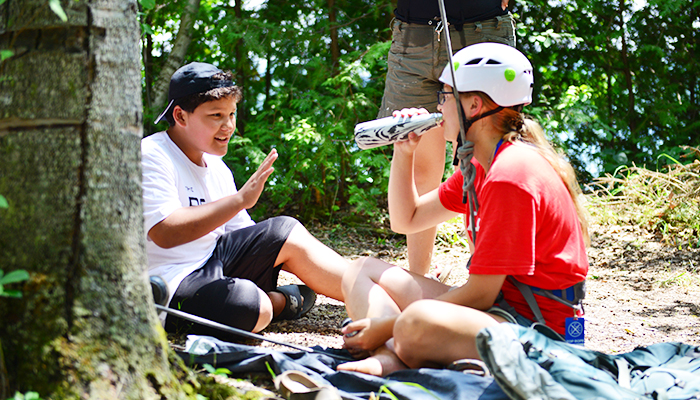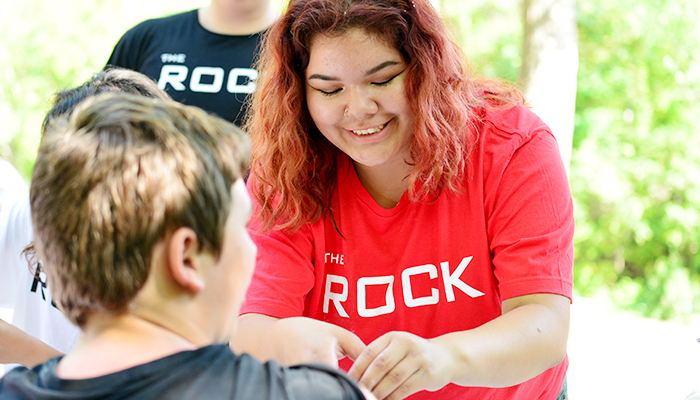Chippewas of Nawash Unceded First Nation - Indigenous MedLINCS Program
In a special installment of R.E.A.L. Life Perspectives, we spent time at Neyaashiinigmiing, or Cape Croker, following four Schulich Medicine students – Layla Amer Ali, Brenna Hansen, Erik Mandawe and Cassie Poole – as they led health and first aid activities at the Rock Camp for Indigenous youth.
The Rock Camp is part of a six-week placement through the School’s Indigenous MedLINCS program. Organized by the Office of Distributed Education, the program places students with the Chippewas of Nawash and Saugeen First Nation communities in the Grey-Bruce region.
With the aim of encouraging more young people to pursue post-secondary education in health-related fields, Indigenous MedLINCS provides opportunities for medical students to engage youth in the communities through activities and field trips. The students also participate in clinical experiences at the Wiarton Hospital and Grey-Bruce Health Services throughout their time in the region.
More than 15 youth participants gathered for the Rock Camp, which is hosted annually by the Chippewas of Nawash Health Centre. The medical students taught the campers how to cast and suture, and facilitated a number of wilderness first aid scenarios.
For 12-year-old Vidal Bruyere, learning from the medical students was an exciting and motivating experience. "They taught us how to turn a negative into a positive," he said. "And to have fun, as long as we're safe."
Thank you to Suzy Jones and the Chippewas of Nawash Health Centre for your assistance and support with this project.
Layla Amer Ali, Medicine Class of 2021

I decided to participate in Indigenous MedLINCS because I wanted the opportunity to really connect with and learn directly from people who come from Indigenous communities.
Being able to speak with different community members and hear their stories about their interactions with health professionals has helped me reflect on what types of health care interactions are effective. Something that we are taught over and over again in medical school is to ‘listen to our patients’ – but how easy is it to ignore the person in front of you when you’ve already set an agenda for their visit?
Health is a journey – this is a teaching that was shared by an elder in Nawash. For me, it sums up everything I learned and experienced this summer. Listen to the person in front of you and become a part of their journey.
It is so important for health care professionals to learn about the cultural and social backgrounds of their patients – not only does it help us understand the person in front of us, but it also demonstrates to our patients that, as health care providers, we really care to know and understand the journey they are on.
The highlight of my summer experience was staying with Rhonda and Brian, our community hosts in Nawash, and the relationships I built with the youth, community members and my Indigenous MedLINCS peers.
Brenna Hansen, Medicine Class of 2021

I chose to participate in the Indigenous MedLINCS program because I have a passion for serving and learning from Indigenous people. When I lived in Edmonton, I worked with the urban Indigenous population for two years. As soon as I heard about the Indigenous MedLINCS program, I knew that it would help me further develop my passion for working with Canada's Indigenous populations, while also giving me a greater understanding of the health care barriers they face.
The highlight of my experience was working with the youth of the Nawash community – it was amazing to see how they came out of their shells and grew to trust us during the six-week placement.
During the summer, I also learned more about the Indigenous perspective on health – it is a journey, and as medical practitioners, our duty is to walk alongside patients and help them meet their health care goals.
Indigenous people have unique values and traditions that set them apart from the rest of Canada, and thus health care practitioners must be educated about Indigenous culture in order to effectively meet the needs of this population.
It is important for medical students to understand rural/regional medicine. Resources can be limited, and early in their training, physicians have to learn how to work within resource-limited environments.
The most unique part of my experience was integration with the reserve culture. We lived right on the reserve, and very quickly built connections within the community. People opened up to us and shared their health care experiences, and we were able to learn firsthand about the barriers that Indigenous people face when accessing the medical system.
Cassie Poole, Medicine Class of 2020

This was my second year being a part of Indigenous MedLINCS. When I first decided to participate in 2017, I hoped to learn more about Indigenous communities and how I could better serve them in my role as a future health care provider. Participating again this year allowed me to continue this journey and gain skills as a learner, mentor and advocate.
I am very grateful to have had the opportunity to learn from the community of Neyaashiinigmiing during the six weeks we lived there. The team at the community health centre was fantastic and extremely welcoming. Working with them and getting to know the youth during the three-day overnight camp was the highlight of the program for me.
This program has significantly impacted how I will interact with Indigenous and non-Indigenous patients. As medical students, we learn about the social determinants of health, but seeing health care function in a rural community context is a perspective I could not have gained from reading alone.
The history of colonization in Canada and the health care disparities that Indigenous populations still experience make it vital that medical students engage with Indigenous communities, so we may learn how to provide the best possible care to our future patients.
I believe Indigenous MedLINCS has great potential to help cultivate positive relationships between Indigenous communities and Schulich Medicine & Dentistry, and hope to see it continue to grow.
Thank you to the rest of the Indigenous MedLINCS student team, as well as Dr. George Kim, assistant dean, and the Office of Distributed Education.
Living our values - The Schulich School of Medicine & Dentistry proudly embraces the values of social responsibility, accountability, and diversity. Each day we work to live these and all our values. Learn more about the School's values, missions, and vision.



